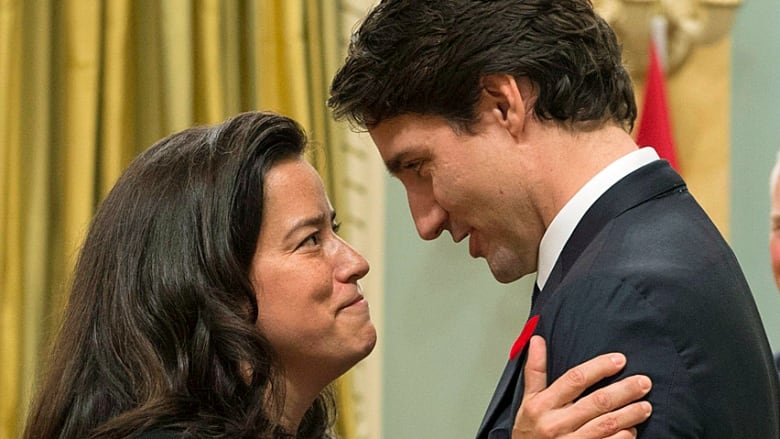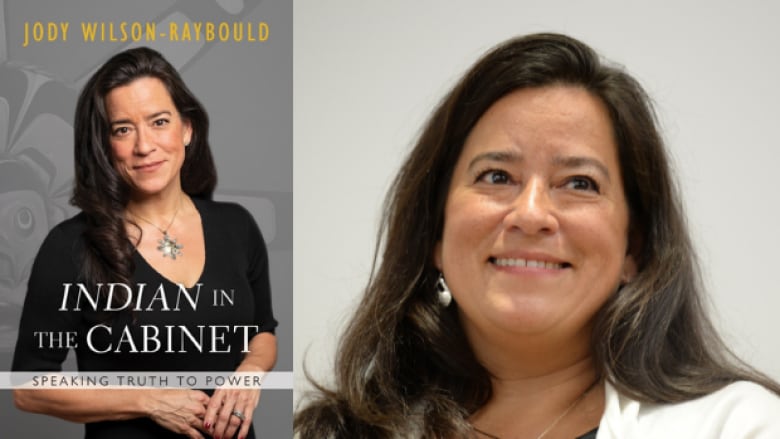Jody Wilson-Raybould says substantive action must follow symbolism on path toward reconciliation
Former justice minister speaks about National Day for Reconciliation with The Current’s Matt Galloway

Jody Wilson-Raybould said she's well aware of the importance of symbolism as Canada marks its first National Day for Truth and Reconciliation.
But while the former justice minister and attorney general agreed the first statutory holiday to reflect on the painful legacy of the residential school system is "incredibly important," she said that symbols and words alone will not be enough to push forward true reconciliation.
"It's one thing to see flags being flown at half mast or taking a knee and, you know, recognizing the tragedies that we have across the country in terms of the history of residential schools," Wilson-Raybould told The Current's Matt Galloway.
"Those symbols are important. But when we speak words, speak rhetoric, or just take symbolic stances and not translate those into actions, that's hugely problematic and the country suffers for it."
Wilson-Raybould resigned from Prime Minister Justin Trudeau's cabinet in 2019, saying she was pressured by senior party leaders and Trudeau himself to intervene in the criminal prosecution of SNC-Lavalin, which was facing bribery charges related to contracts in Libya.
She was removed from the Liberal caucus but retained her seat in Vancouver-Granville during the 2019 election as an Independent MP. She chose not to run in 2021.
Wilson-Raybould lays out the myriad details of the SNC Lavalin affair, and her experiences as a cabinet minister, in her memoir, Indian in the Cabinet: Speaking Truth to Power.
The book launched during the 2021 election, prompting Trudeau to answer questions about details it revealed while on the campaign trail.
"I did not want her to lie," Trudeau said responding to questions about Wilson-Raybould's accounts of two key meetings regarding SNC-Lavalin. "I would never do that. I would never ask her that. That is simply not true."

Wilson-Raybould also wrote in her book that the RCMP were considering whether to investigate the government's role in the affair as recently as January of this year. Trudeau said during the election campaign that he had not been personally contacted by the RCMP. (The RCMP told CBC News it did not have any updates on the matter.)
Canadians want parties to work together, says Wilson-Raybould
She noted, with a wry laugh, that she watched the election "from a very different vantage point" compared to years past.
She said she believes that the election of another Liberal minority government means Canadians told politicians to work together instead of continuing the partisan sniping and acrimony that has characterized much of recent political discourse.
"People might say, 'Oh, she sounds so naive.' But I'm OK with that label if being naive means that there's better ways to actually engage and in these discussions and to actually believe that by working across party lines, we can actually come up with different solutions," she said.
Wilson-Raybould said she entered Parliament in 2015 with hopes of being part of a government that could cross those divides and push forward meaningful change on Indigenous issues. Over time, she said, that began to change.

She said she experienced "an increasing sense of marginalization" throughout her tenure, while watching the Liberals' action plans for reconciliation sidelined in favour of other priorities.
That feeling of being sidelined is reflected in her memoir's title. More than a glib reference to the children's novel The Indian in the Cupboard, the title refers back to Wilson-Raybould's descriptions of interactions with colleagues that she said made her feel more like a curiosity than an equal.
"I sat around a cabinet table and realized I was looked upon not as a proud Indigenous person with a different world view and opinions and expertise, but simply as an Indian," she said.
She added that she specifically used the title to invoke the Indian Act, which she called "one of the most racist marginalizing pieces of legislation as it relates to Indigenous peoples in this country."
Despite the frequent roadblocks she said she experienced in government, Wilson-Raybould gave credit to work that the government has accomplished recently, such as addressing ongoing boil-water advisories in some First Nations. But she said the "transformative promise" of reshaping the Canada-Indigenous relationship hasn't been fulfilled.
"My expectation was that we had a leader and a government that was willing to do the hard work necessary to change that environment," she said of Trudeau.
"And increasingly over ... the days and years, that just simply wasn't the case. It was more symbolism over the actual substance and action that was required."
She said she remains hopeful for the future and doesn't want her experiences to dissuade others who see involvement in politics as a way to drive positive change.
"It wholly remains within our power to speak up, and in speaking up, to help our system of government and our country continue to get better ... both individually and collectively," she said.
"That's why I've shared what I've learned. And I'm going to continue to do that."
Written by Jonathan Ore with files from CBC News. Produced by Alison Masemann.

